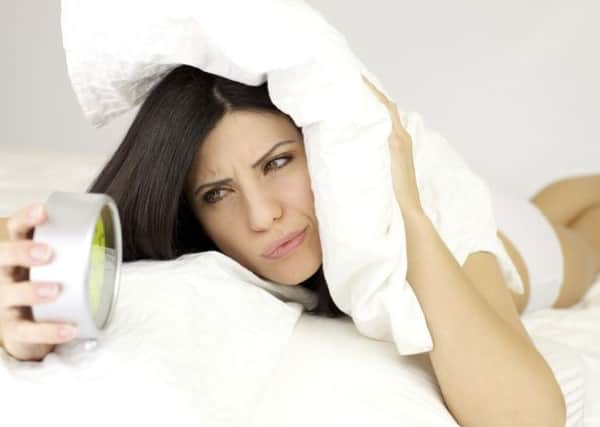How many hours of sleep do we really need?


The late American comedian Bill Hicks once joked that he could get by on eight hours of sleep a day ... “and at least ten at night.”
OK, he might have been exaggerating for comic effect, but most people have a good idea of how much sleep they need in order to be a proper, functioning human being. And for a lot of us that is eight hours.
Advertisement
Hide AdAdvertisement
Hide AdJust as we accept that we should drink plenty of water and not stand too close to the river edge, so the perceived wisdom has long been that this is the optimum amount of sleep we should be aiming for.
Back in the 19th Century, the labour movement in Britain even coined the phrase –“Eight hours labour, Eight hours recreation, Eight hours rest.” If only, I can hear some of you say.
There are certainly several well known names who needed far less. During the Second World War, Winston Churchill got by on just four hours of sleep a night (fortified by the occasional glass of brandy and Pol Roger), while Margaret Thatcher famously only needed a similar amount when she was prime minister.
Parents with babies will also tell you that sleep is a luxury they can only dream about – well, they would if they had the time. For many of them five hours of uninterrupted sleep is a welcome, if rare, bonus.
Advertisement
Hide AdAdvertisement
Hide AdBut in recent years researchers have been increasingly questioning this “one size fits all” view, and now scientists have spotted a gene variant that strongly suggests some people are programmed to cope on less than five hours of slumber a night.
By studying 100 sets of twins, researchers in the United States found that those with a particular gene variant (the snappily named p.Tyr362His) had fewer lapses in performance when deprived of sleep for 38 hours and recovered quicker afterwards.
Which could be good news for those who worry they’re not getting enough sleep on a daily basis – perhaps you simply don’t need as much.
Experts say that sleep requirements vary from person to person and that the biggest challenge for most of us, living in this age of information overload, is to enjoy a good deep sleep rather than a certain quota of hours. That way we’re more likely to feel rejuvenated.
Advertisement
Hide AdAdvertisement
Hide AdSocial psychologist Dr Sandra Wheatley says that six to seven hours a night is normal. “Most people will go to bed between 11 and 12 and wake up at 7am. When people become mums and dads, they soon realise they don’t need that much sleep.”
So it seems that how much sleep we need is down to the individual and there is no “optimum” amount after all. “There’s no magic number,” says Wheatley. “If you sleep when you feel tired, it’s going to do you more good. Having a quick nap in the middle of the day can be as good as having two more hours at night - and if you’re working shifts, midnight for you might be midday. So it’s more about trusting your body and what feels right.”
Which brings us to the pros and cons of the so-called power nap. For some people this just leaves them feeling more tired than they did beforehand, but others find it gives them an energy boost.
Dr Wheatley says it can be effective. “Each of us has a sleep cycle, which goes in a wave pattern of lighter and deeper sleep. To complete a full cycle, it’s 40-45 minutes for an adult and about half an hour for a baby. So with a 20 minute nap, you’re having enough of that wave to make you feel better, before it drags you into deeper sleep, which is harder to come out of.”
Advertisement
Hide AdAdvertisement
Hide AdSo in a nutshell, if you sleep for eight hours a night and go to work and still find yourself nodding off in front of your computer, you aren’t getting enough. But if you’re sleeping five hours and still able to run the country, then you probably are.